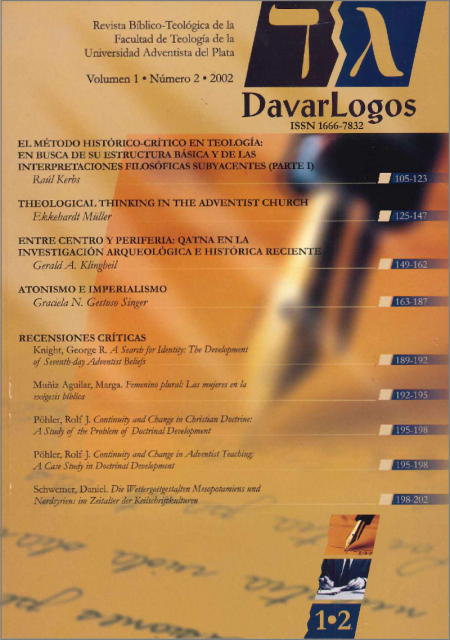EL MÉTODO HISTÓRICO-CRÍTICO EN TEOLOGÍA: EN BUSCA DE SU ESTRUCTURA BÁSICA Y DE LAS INTERPRETACIONES FILOSÓFICAS SUBYACENTES (PARTE I)
Resumen
El método histórico-crítico ha sido objeto de muchos análisis y críticas, las cuales no son radicales porque no quieren renunciar a la interpretación filosófica de la realidad y del conocimiento humano que está supuesta en él. Por medio de un análisis de la crítica histórica y literaria moderna de las Escrituras en Spinoza, Lessing, Baur y Kuenen, el presente estudio procura poner de manifiesto la estructura esencial del método histórico-crítico. Al mismo tiempo, se trata de descubrir la interpretación de la realidad (ontología) y del conocimiento (epistemología) que está supuesta en la constitución de dicha estructura. Al mostrar, por un lado, que la estructura esencial del método histórico-crítico no puede funcionar sin esa interpretación ontológica y epistemológica y, por otro lado, que ella no proviene del texto bíblico, se apunta a mostrar, en primer lugar, la necesidad de una crítica radical del método que ponga en cuestión su interpretación ontológica y epistemológica subyacente y, en segundo lugar, la necesidad de una metodología exegética que se apoye conscientemente en la interpretación bíblica de la realidad (ontología) y del conocimiento humano (epistemología).AbstractHistorical criticism has been subject to various analyses and criticism, which, however, are never radical since they do not renounce the philosophical interpretation of reality and human knowledge involved in it. By analyzing modern historical criticism of Scripture in Spinoza, Lessing, Baur and Kuenen, this study tries to unfold the basic structure of the historical critical method. At the same time, there is an attempt of exposing the interpretation of reality (ontology) and of knowledge (epistemology) included in the constitution of its structure. By showing that–on the one side–the basic structure of historical criticism cannot function without the ontological and epistemological interpretations and that–on the other–such interpretation is not based on the biblical text, the author tries to present, firstly, the need for a radical criticism of the method which may question its underlying ontological and epistemological interpretation and, secondly, the need for an exegetical methodology which is consciously supported by a biblical interpretation of reality (ontology) and of human knowledge (epistemology).Descargas
Los datos de descargas todavía no están disponibles.




